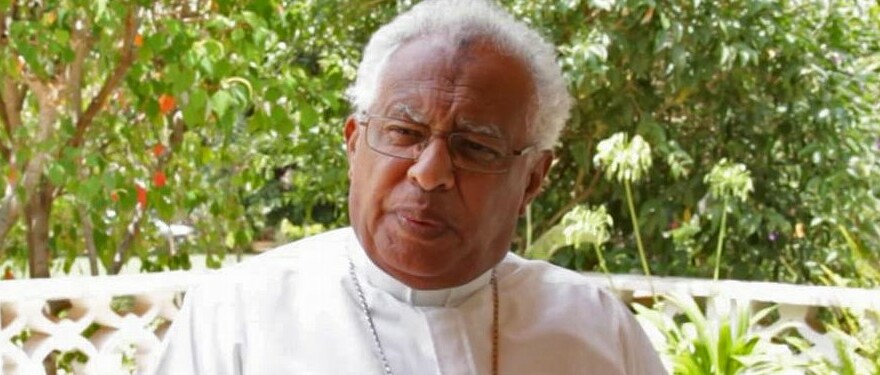Bishop Macram Max Gassis, the first Catholic Bishop of El Obeid Diocese in Sudan, has passed on in the U.S. after suffering poor health “for many months”. He was aged 84.
The member of the Comboni Missionaries of the Heart of Jesus (MCCJ) died on Sunday, June 4, Sudan and South Sudan’s Catholic Bishop Conference has announced.
According to the Bishop Secretariat, Gassis continued to travel the world from his headquarters in Nairobi, Kenya, serving as the voice of the people of the Nuba Mountains and South Sudan.
Fr. John Gbemboyo, Social Communication at Bishop Secretariat said Late Macram Max Gassis had contributed significantly by raising funds to build schools, hospitals, roads, and wells in Sudan.
Despite his hill health, he has contributed diligently in the vineyard where God called him to serve his people. Condolences to his family, to the Sudan Catholic Bishops Conference (for South Sudan & Sudan), the Diocese of El Obeid especially to the people in the Nuba Mountains, said Fr. Gbemboyo.
Bishop Macram Max Gassis was born in Khartoum, Sudan in 1938, and attended his early education at the Comboni Missionaries before joining a seminary in Italy. He was ordained a priest on June 28, 1964, in Verona, Italy.
He returned to his home diocese of El Obeid in 1965, and served as assistant Parish Priest in Wad Medani, expanding the work of the church and establishing new parishes throughout the region.
He served as a Chaplain at the University of Khartoum and also earned a degree in canon law from the Catholic University of America. By 1983, the Bishop had been appointed Apostolic Administrator of the Diocese of El Obeid and was ultimately appointed Bishop of El Obeid on March 12, 1988.
A former Nobel Peace Prize nominee, Bishop Macram testified before the U.S. Congress in 1988 about the human rights abuses committed by the Sudanese government against the innocent people of his country, including enslavement, air raids, forced starvation, and rape at the hands of the government’s army.
Following this testimony, the Sudanese government brought criminal charges against him, and for years he was forced to sneak in and out of his country for security reasons.




